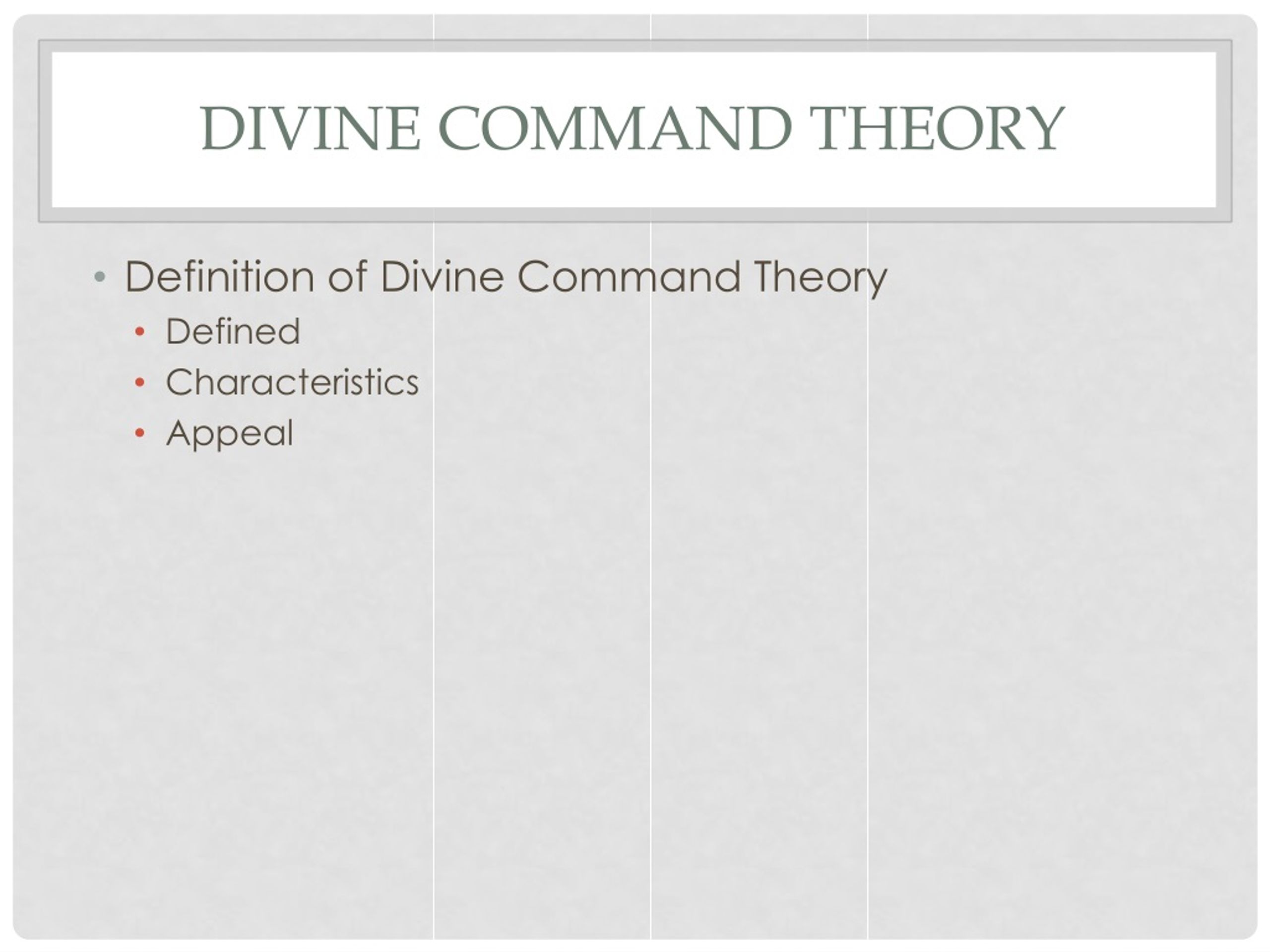
In addition, the Euthyphro dilemma, first proposed by Plato (in the context of polytheistic Greek religion), presented a dilemma which threatened either to result in the moral arbitrariness of morality itself, or to result in the irrelevance of God to morality. Others have challenged the theory on modal grounds by arguing that, even if God's command and morality correlate in this world, they may not do so in other possible worlds.

He also contended that, as knowledge of God is required for morality by divine command theory, atheists and agnostics could not be moral he saw this as a weakness of the theory. Semantic challenges to divine command theory have been proposed the philosopher William Wainwright argued that to be commanded by God and to be morally obligatory do not have an identical meaning, which he believed would make defining obligation difficult. Paul Copan has argued in favour of the theory from a Christian viewpoint, and Linda Trinkaus Zagzebski's divine motivation theory proposes that God's motivations, rather than commands, are the source of morality. Numerous variants of the theory have been presented: historically, figures including Saint Augustine, Duns Scotus, William of Ockham and Søren Kierkegaard have presented various versions of divine command theory more recently, Robert Merrihew Adams has proposed a "modified divine command theory" based on the omnibenevolence of God in which morality is linked to human conceptions of right and wrong. Portrait of Saint Augustine, the oldest proponent of the Divine command theory


 0 kommentar(er)
0 kommentar(er)
